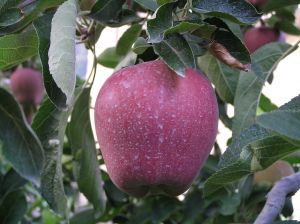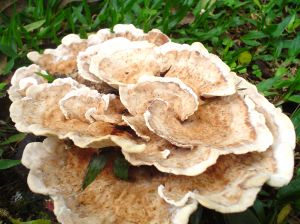When I read information like the following Abstract, I'm stunned that we wait for someone to "prove" what we have enough evidence to "suspect" is the cause of illness. We wait until it's too late to do anything about it...instead of immediately thinking, "My life is too precious. If there is a 'possible link I am not going to take a chance. I can live without xxxx in my life."
Pesticides and cancer: Dich J, Zahm SH, Hanberg A, Adami HO.
Abstract
"Epidemiologic evidence on the relationship between chemical pesticides and cancer is reviewed.
In animal studies, many pesticides are carcinogenic, (e.g., organochlorines, creosote, and sulfallate) while others (notably, the organochlorines DDT, chlordane, and lindane) are tumor promoters. Some contaminants in commercial pesticide formulations also may pose a carcinogenic risk.
In humans, arsenic compounds and insecticides used occupationally have been classified as carcinogens by the International Agency for Research on Cancer. Human data, however, are limited by the small number of studies that evaluate individual pesticides.
Epidemiologic studies, although sometimes contradictory, have linked phenoxy acid herbicides or contaminants in them with soft tissue sarcoma (STS) and malignant lymphoma; organochlorine insecticides are linked with STS, non-Hodgkin's lymphoma (NHL), leukemia, and, less consistently, with cancers of the lung and breast; organophosphorous compounds (About 70% of the insecticides in current use in the United States are organophosphorous (OP) pesticides, a total of around 90 million pounds per year) are linked with NHL and leukemia; and triazine herbicides with ovarian cancer.
Few, if any, of these associations can be considered established and causal. Hence, further epidemiologic studies are needed with detailed exposure assessment for individual pesticides, taking into consideration work practices, use of protective equipment, and other measures to reduce risk. "
Source: Department of Cancer Epidemiology, Karolinska Institute and Radiumhemmet, Karolinska University Hospital, Stockholm, Sweden.
_ _ _
And here is a summary from the EPA's website:
Pesticides and Food: Health Problems Pesticides May Pose
Laboratory studies show that pesticides can cause health problems, such as birth defects, nerve damage, cancer, and other effects that might occur over a long period of time. However, these effects depend on how toxic the pesticide is and how much of it is consumed. Some pesticides also pose unique health risks to children.
For these reasons, the Federal Government, in cooperation with the States, carefully regulates pesticides to ensure that their use does not pose unreasonable risks to human health or the environment. "
What is "unreasonable risk"? Is there such a thing as "reasonable risk" when it comes to our health? Who decides? People you know nothing about....or YOU?
YOU are in Charge of Your Health and the Health of Your Children
Were bombarded with pollutants from vehicle emissions, manufacturing plants, dry cleaner chemicals, lawn mowers, those darn awful leaf blowers that make me cookoo, and pesticides sprayed everywhere. It's a miracle our liver functions at all. Then add pharmaceuticals, artificial coloring, sugar, lotions with Parabens and EDTA, and deodorants with things we can't spell much less pronounce, and no wonder we're walking hot beds for the development of Alzheimer's, Cancer and a host of other ailments.
Get in the driver's seat. You are wise. Don't wait 10 years until the FDA or the EPA has enough 'clinical' data. By then you could be one of the subjects they're studying, God forbid!
I have thrown away my Teflon pans, I don't let plastic wrap touch my food (I place a small square of parchment paper or was paper on the food before I wrap it), I never put Aluminum Foil against any sauces or acidic foods (you know the acid eats right through the foil...yes?), and I told my gardener not to use pesticides on any weeds, and to hand rake my leaves.
Love your life and your children's lives enough to sacrifice convenience for caution. It's a different world...we have to think defensively. Some things we can do little about, like air pollution, so do what you can with things you have control over.
~ In Good Health. ♥




